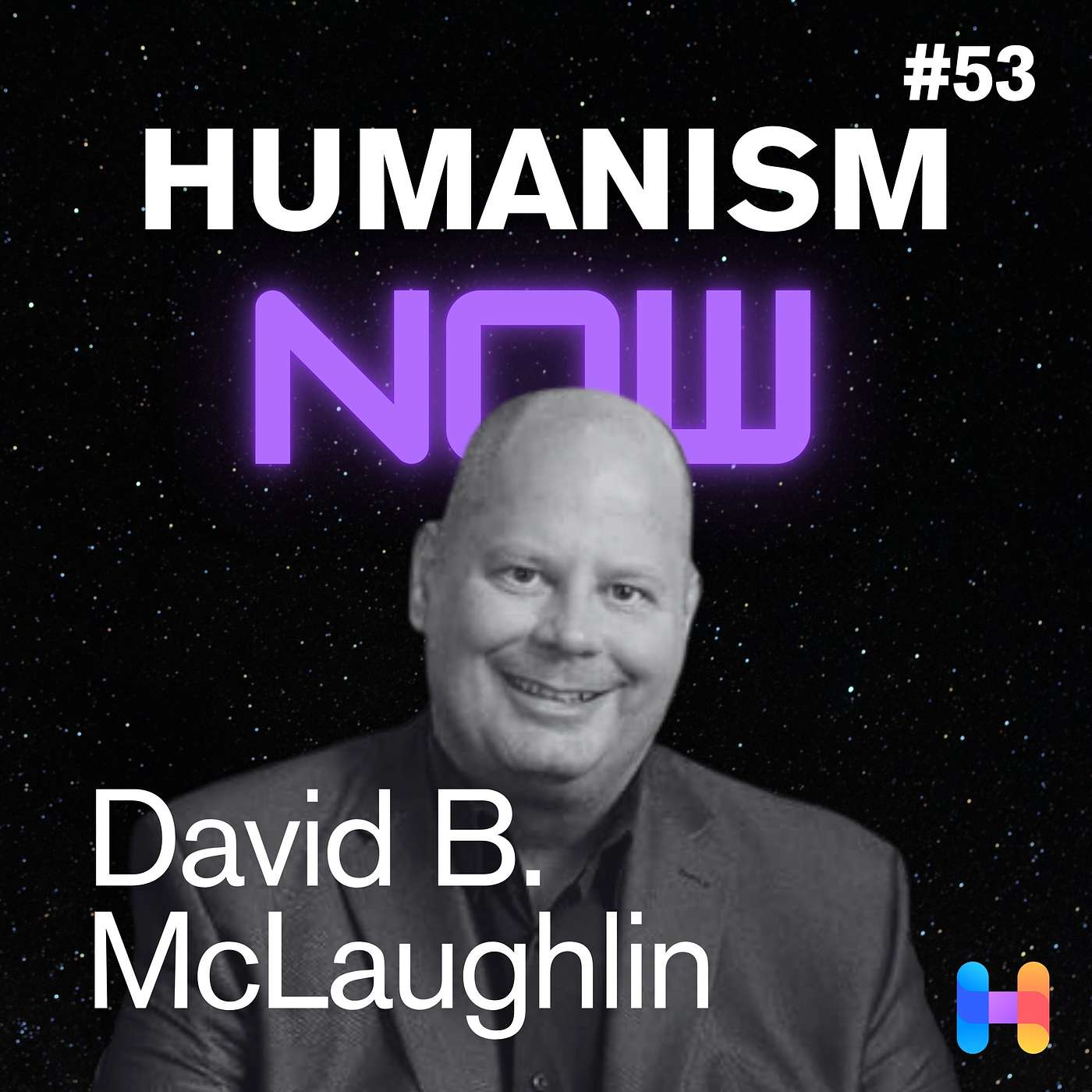View Transcript
Episode Description
“Human dignity is really the foundation for reasoned morality — there’s nothing we can do to increase it or decrease it. Even the worst people still deserve it simply because they’re human.” - David B. McLaughlin
David B. McLaughlin, leadership coach and author of Humanism: Five Values for Living Well, joins us to map a practical, hopeful framework for meaning without dogma. From life in the U.S. Bible Belt to boardrooms wrestling with equity, we explore how meaning, dignity, reason, compassion, and justice work together to guide everyday choices and systemic change.
Connect with David B. McLaughlin
- Website – pendulumcoaching.com
- Newsletter – exploringhumanism.substack.com
- LinkedIn – www.linkedin.com/in/davidbmc
Topics we cover
- Dignity as a moral floor you can’t earn or revoke
- Spotting dehumanisation and resisting it
- The Pillar Model of meaning
- Rituals beyond religion: building habits that anchor values
- Reason + compassion: escaping autopilot and widening concern
- Justice at work: equity, fair policies, and psychological safety
- Seeing hidden power: systemic awareness for better decisions
- The “reverse wager of humanism”: urgency to do tangible good now
Resources & further reading
- Humanism: Five Values for Living Well – David B. McLaughlin – https://www.amazon.co.uk/Humanism-Five-Values-Living-Well/dp/B0FNRP5GKR
- Pendulum Coaching Podcast – Conversations on modern leadership – https://www.pendulumcoaching.com/podcast
- “Pale Blue Dot,” Voyager 1 image & essay – background on Sagan’s perspective – https://en.wikipedia.org/wiki/Pale_Blue_Dot
Support Humanism Now & Join Our Community!
Follow @HumanismNowPod | YouTube | TikTok | Instagram | Facebook | Threads | X.com | BlueSky
Humanism Now is produced by Humanise Live, making podcasting easy for charities and social causes.
Contact us to get starting in podcasting today at humanise.live or hello@humanise.live
Music: Blossom by Light Prism
Podcast transcripts are AI-generated and may contain errors or omissions. They are provided to make our content more accessible, but should not be considered a fully accurate record of the conversation.
